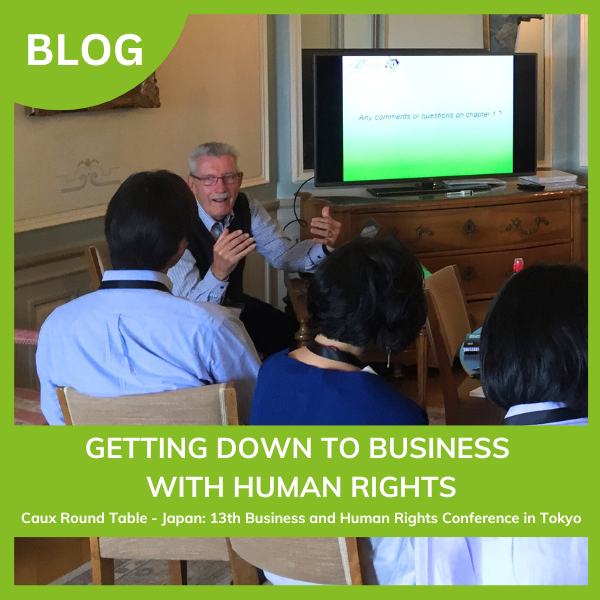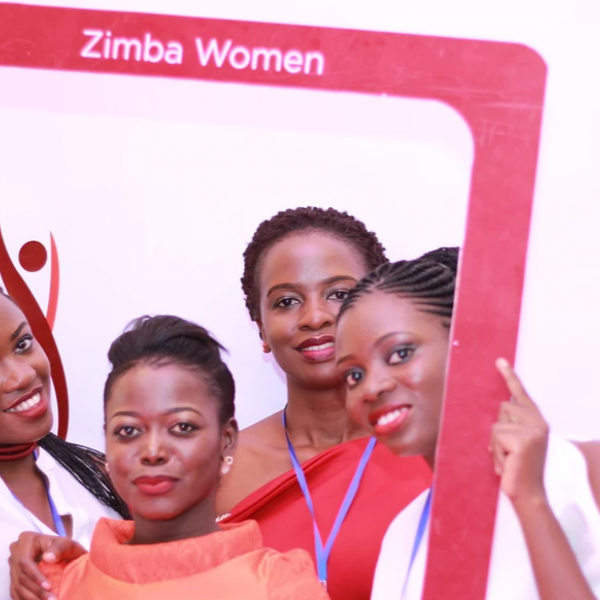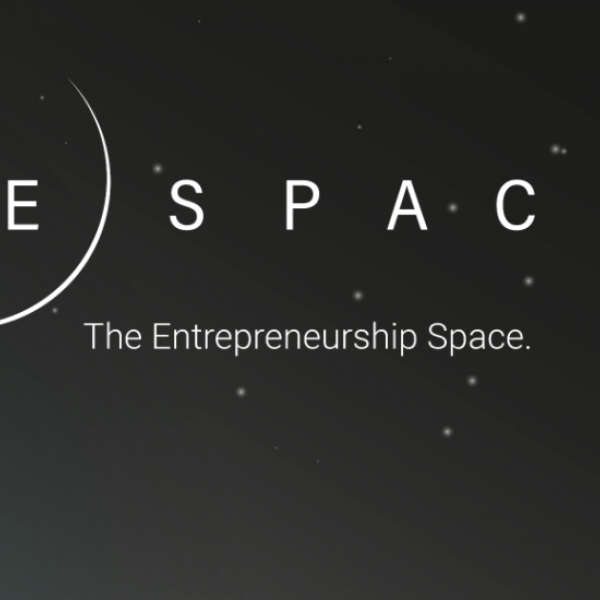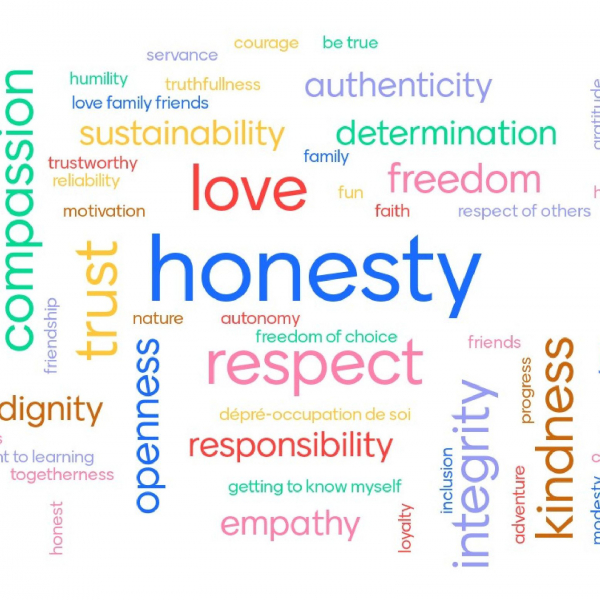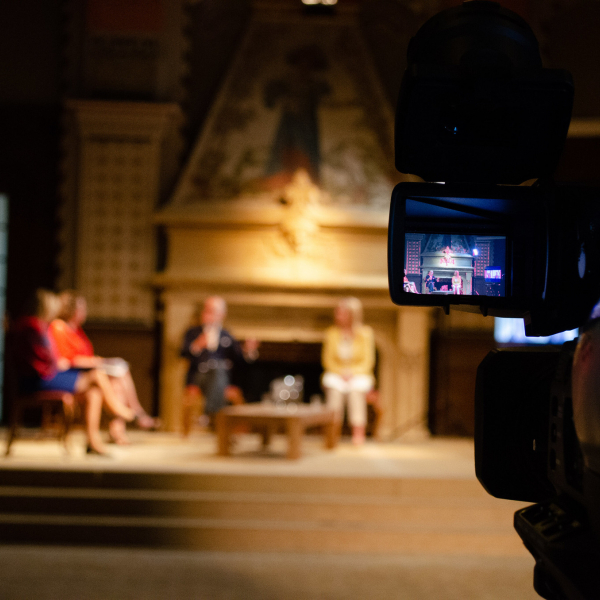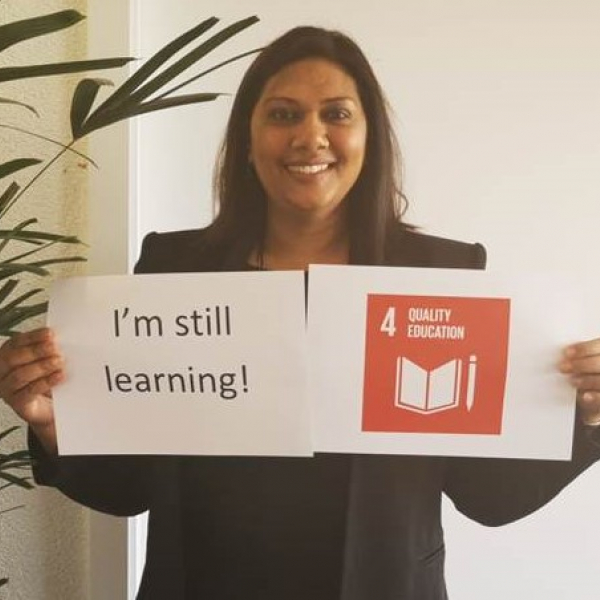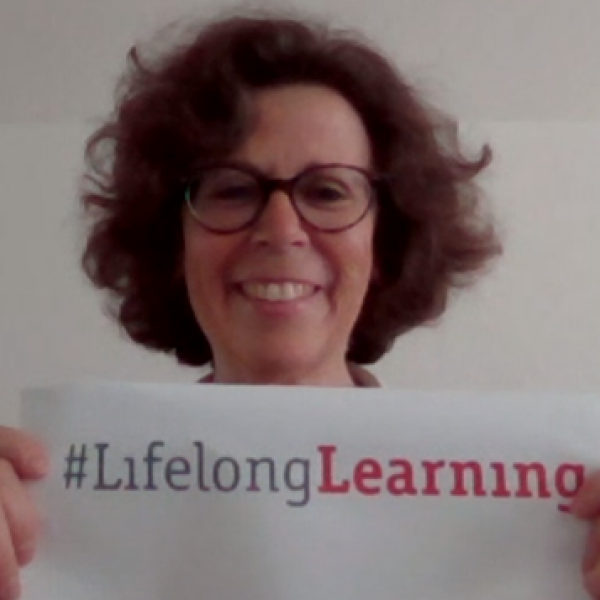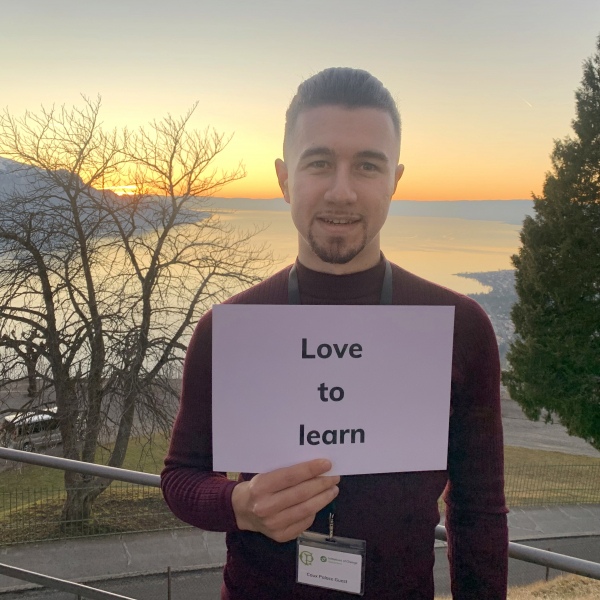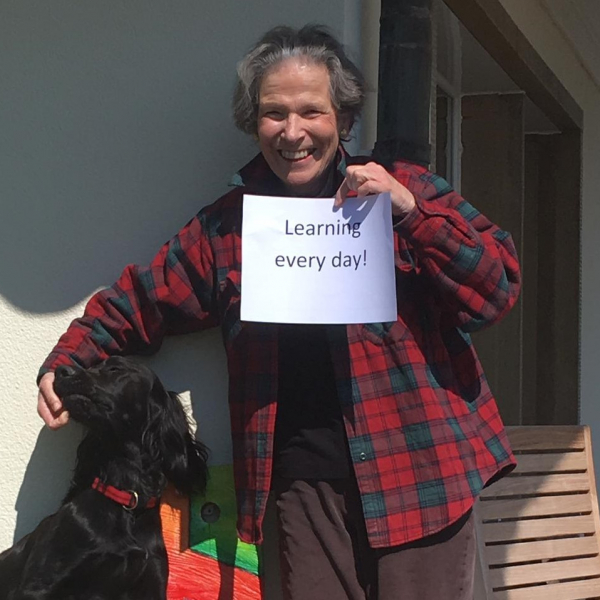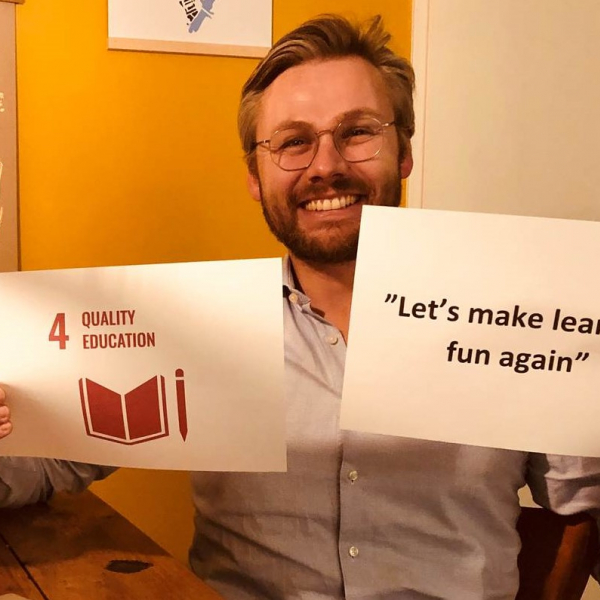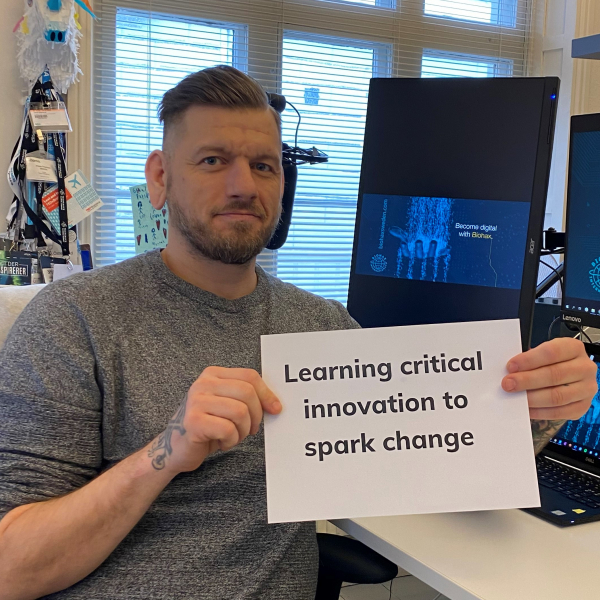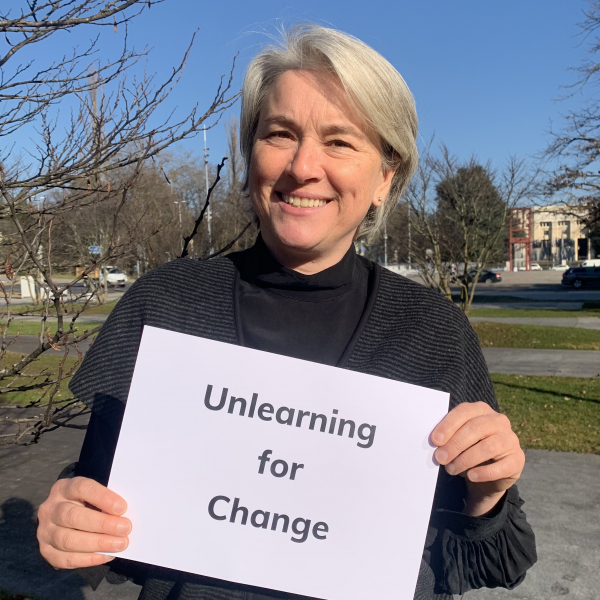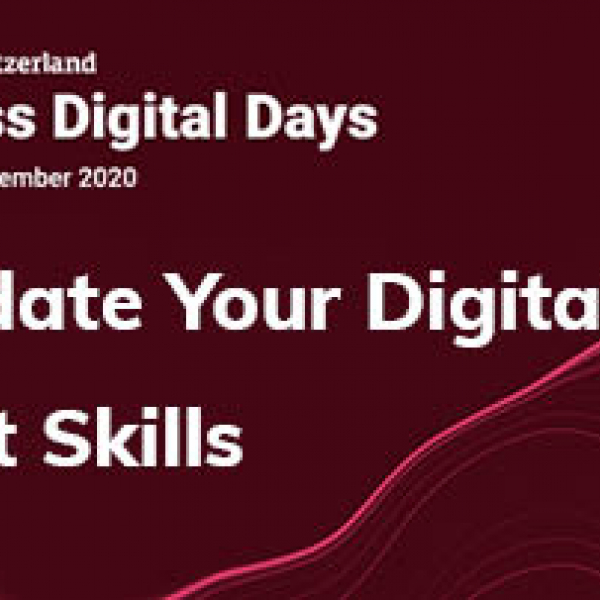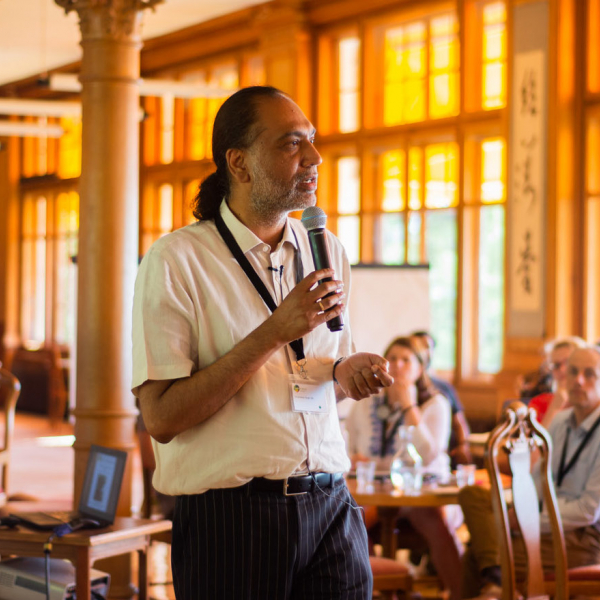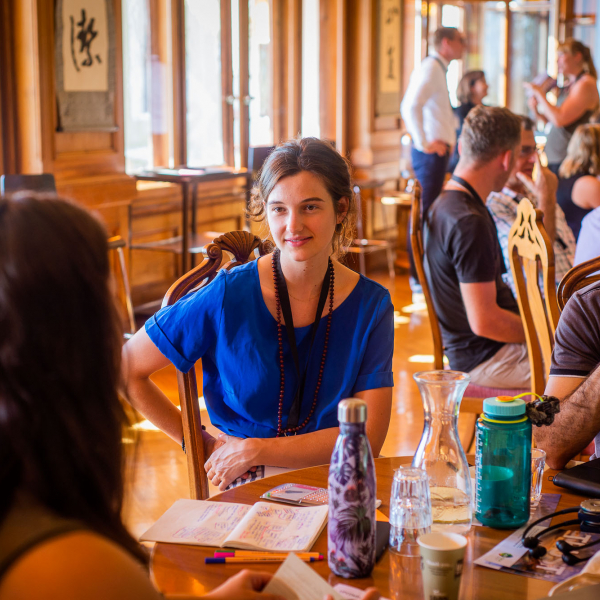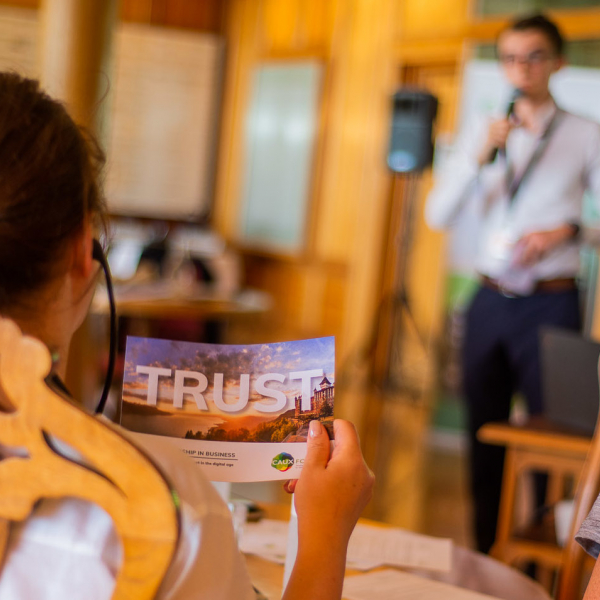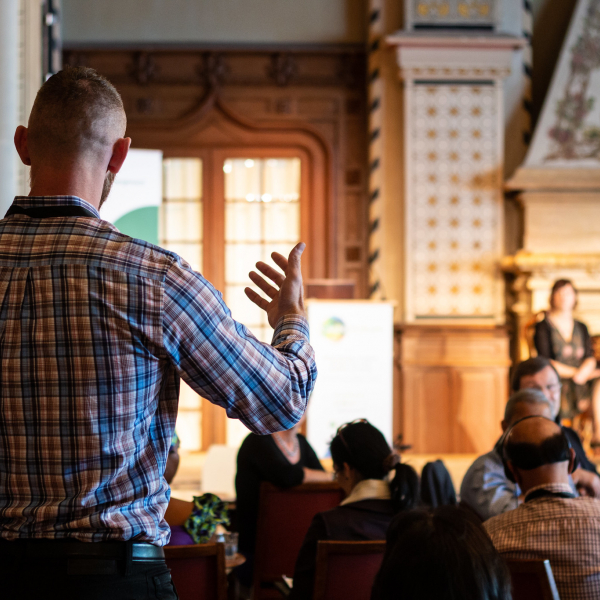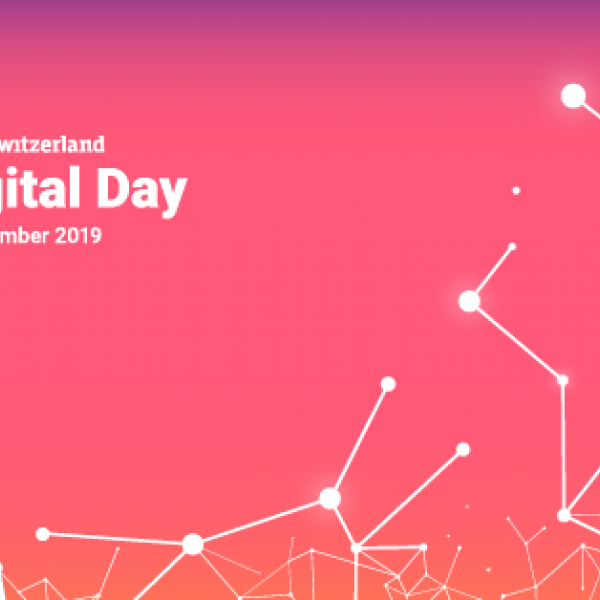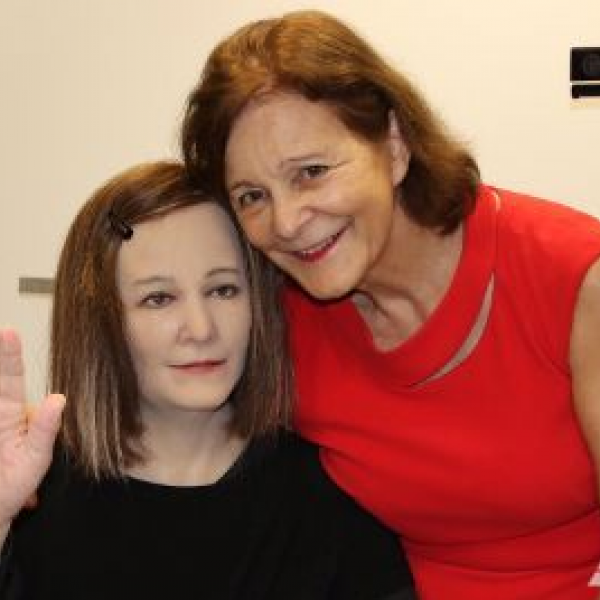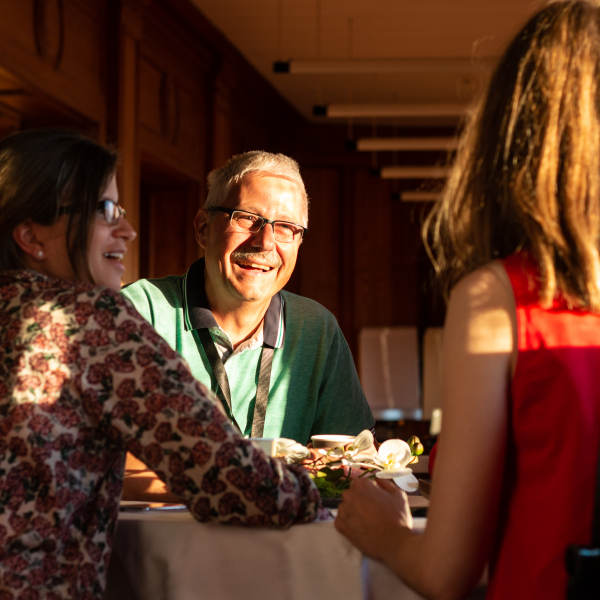Discovering digital trust at Caux
Ethical Leadership in Business 2019
03/07/2019
The Caux Forum 2019 kicked off last week with the Ethical Leadership in Business (ELB) conference which ran in parallel with the Caux Dialogue on Land and Security. The Ethical Leadership in Business conference took place from 27-30 June and centred on 'Rethinking trust in the digital age’.
Day 1
Amandeep Singh Gill, India's Ambassador and Permanent Representative to the Conference on Disarmament in Geneva, opened the conference by sharing some conclusions of the High-Level Panel on Digital Cooperation, whose secretariat he heads. The panel’s report, The Age of Digital Interdependence, indicates that the opportunities for human progress in the digital age ultimately outweigh the challenges – if we join together in a spirit of cooperation and inclusiveness. The report identifies good examples of cooperation across sectors, disciplines and borders to address challenges in the digital age, and makes proposals for the way forward.
Fr Eric Salobir, Founder and President of Optic Technology, took the group on a digital adventure, to explore what daily life might be like in an increasingly tec-heavy world. His scenarios pointed to the potential dark sides of over-reliance on smart phones, watches, devices and AI. He encouraged participants to trust in the resilience of humanity.
Day 2
The morning’s panel discussion asked ‘Will technology improve digital trust?‘. Click here and watch the whole session on our Facebook page.
Anne-Catherine Melnotte, from Firmenich, the world’s largest privately-owned fragrance and flavour company, underscored the need to be clear on what data is collected and for what purposes.
Jowan Österlund, CEO of Biohax International, talked about Blockchain solutions which enable individuals to own and, potentially, monetize their own data.
Sébastien Fabre rom SITA, the world's leading air transport IT and communications specialist, spoke of the need for frameworks to enable individuals to manage their data and options. He said that regulation is evolving and cited the example of San Francisco, where a local ordinance prohibits the use of facial recognition technology by city departments and requires them to seek approval before deploying any other new kind of surveillance technology.
Susanne Emonet, a Vice President at the Kudelski Group, talked of the risks to people in the new digital world. She pointed out that everything was hackable, from the connected hoover at home to the national power grid. Her company is a global leader in digital security and convergent media solutions and is based in Switzerland. Education and understanding are needed to build trust, she said, and to increase cybersecurity standards. People don't often know where data goes and where it is being collected and stored; they need to be more aware of how their devices expose them.
The afternoon’s Tech & Trust Talk featured Kaspar Kork from the Estonian Investment Agency and Marylaure Bloch from Optic Technology and the University of Geneva. They spoke about the digital culture in Estonia and China. For example, the Chinese government is developing the 'social credit system' to standardize assessment of citizens' and businesses' economic and social reputation. The system uses big data analysis technology and can be seen as a form of mass surveillance. Its accuracy is not 100 per cent and a uniform national system is not yet fully in place.
Estonia is known as a ‘cool and digital society’, said Kaspar Kork. Electronic ID cards are used for various government services. People trust the government and believe that their data is secure thanks to the decentralization of data, high security and protective legislation. The system eases registering companies and doing business at home and abroad. Estonia’s e-residency system allows citizens to use services wherever they are located in the world. All personal data is available to and controllable by the individual. Estonia was first country to use Blockchain on a national level. (e-Residency is a government-issued digital identity and status that provides non residentials access to Estonia’s government services).
The Human Library in the evening gave participants a chance to hear individual stories shared in depth. Brian Iselin gave gripping accounts of human rights violations that his organization slavefreetrade has uncovered in their pursuit of ethical consumerism. Suat Topsu, the President of SATT IDF Innov, described how he co-invented LIFI, a revolutionary wireless technology that uses LED light sources instead of microwaves to transmit data.
Day 3
The morning plenary opened with the question: ‘Will the digital transformation humanize work?’
The panel included Peace Kuteesa from Uganda, the founder of Zimba Women. She spoke about what she has learnt through coaching and working with women who are building their own businesses. (Zimba means to build.) She talked about empowerment, the fears that prevent women from doing their best and the cultural elements that can sometimes slow women down (for instance, male-dominated households where women have to ask permission to access the computer or are not supposed to speak out).
Bram Jonker from Deloitte (Netherlands) shared his belief that automation can free people to do more human-related work. He referenced Future of the Professions by Richard and Daniel Susskind, which predicts the decline of today's professions and describes the people and systems that will replace them. He sees robots 'partnering' with humans even more in the future as repetitive and manual tasks are automated. AI will provide things we couldn't possibly do.
The afternoon session on ‘New professions bring new opportunities and responsibilities’, featured Morgan Gray, who leads Global Digital Listening and Insights at Corteva Agriscience (the agricultural division of DowDuPont). Her role includes finding, tracking and analyzing social media conversations with the aim of bringing public discourse into the company. She works with digital tools and AI to monitor online conversations, analyze data and identify key themes for her company.
Carolyn Moncel is Senior Communications Manager with the Geneva Centre for Security Policy (GCSP), an international foundation that promotes peace, security and stability. She said her role is all about 'digital amplifying’, working with teams to align content (video, web, social media, etc) within their communication channels. She challenged people go into the unknown and see where it leads them. Women are often scared away from IT by the assumption that it requires a high level of digital skill. She urged both young and old to stay open and keep learning, in the belief that there will be jobs for those who keep their skills updated.
Watch an online interview of Carolyn Moncel and Morgan Gray by Rainer Gude, IofC Switzerland.
Day 4
ELB concluded with a silent 'mindful' walk to a tranquil meeting point with scenic views to Lake Geneva. During the ascent, participants were invited to reflect on what they had learned at the conference, both professionally and in terms of personal purpose, values, change and choices. They were also encouraged to define next steps and commitments. In doing this they could draw on the daily Trust Incubator session, led by Tom Marshall from Deloitte (Netherlands), which helped participants generate ideas, insights and tools and to reflect on their purpose and values.
Four key projects emerged for implementation the coming year. Teams were established and first steps were defined:
1. The creation of a platform, where participants can keep connected, share projects, discuss issues and produce a digital newsletter.
2. A bi-monthly conference call to share knowledge and skills and to encourage a continuous learning mindset.
3. A monthly open call to address themes raised by the platform team.
__________________________________________________________________________________________________________________________________________________________________________________________
What 2019 participants said
The Ethical Leadership in Business conference equipped me with the mindset, knowledge and connections to contribute to ensuring that our digital transformation benefits humankind.
Tom Marshall, Innovation Community Ambassador, Deloitte (Netherlands)
Caux is such a humbling place, providing you with a safe space to experiment with different topics and flourish in bold-thinking, all while staying true to yourself.
Michelle Rickenbach, IT Project Management & Ecosystem Relations at Panter AG
By James Macsay






